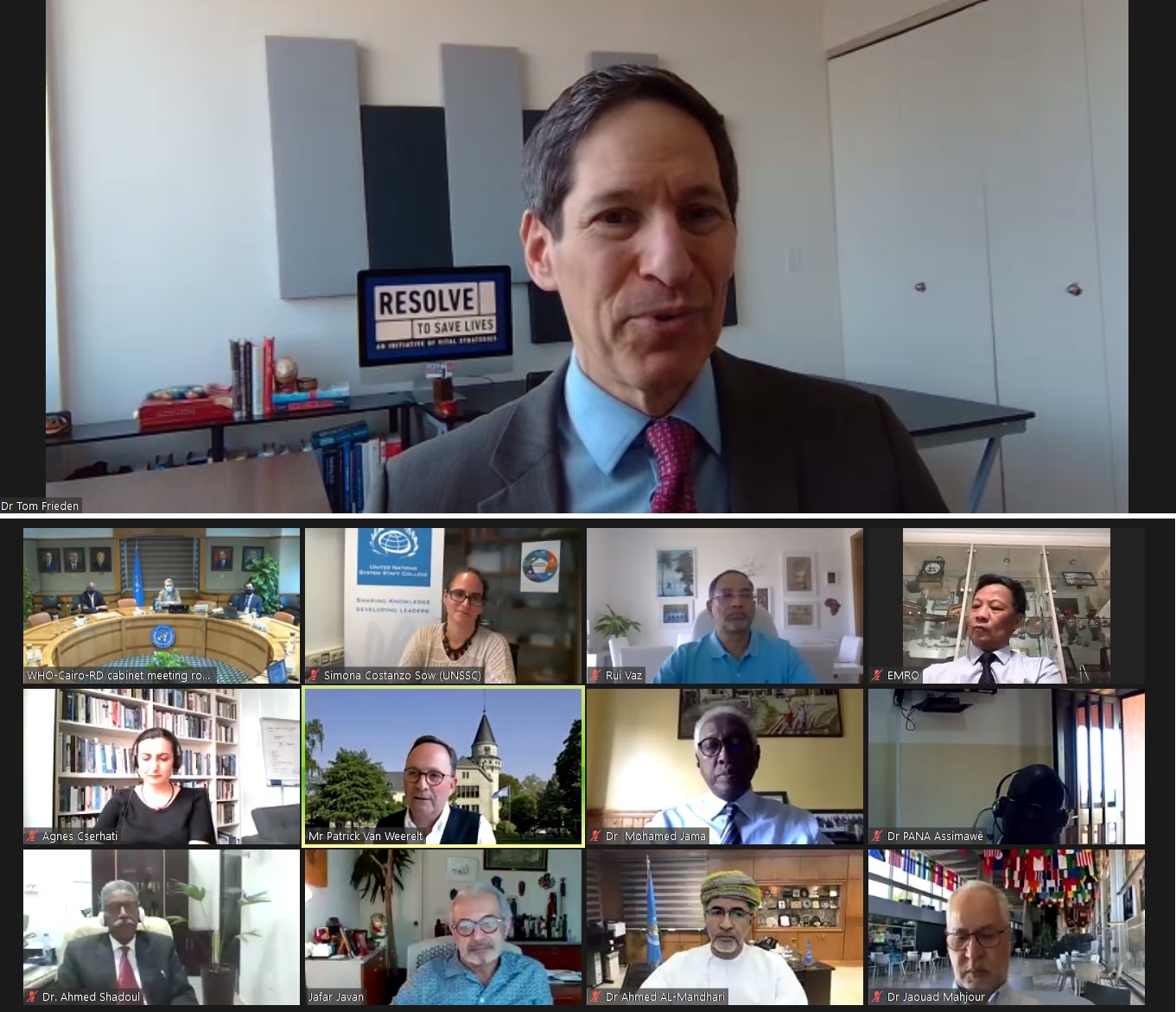 24 June 2021 – The WHO Regional Office for the Eastern Mediterranean, in collaboration with the United Nations System Staff College, has launched a leadership programme on epidemic and pandemic preparedness and response, announced today by the WHO Regional Director Dr Ahmed Al-Mandhari and the Director of the United Nations Systems Staff College Dr Jafar Javan.
24 June 2021 – The WHO Regional Office for the Eastern Mediterranean, in collaboration with the United Nations System Staff College, has launched a leadership programme on epidemic and pandemic preparedness and response, announced today by the WHO Regional Director Dr Ahmed Al-Mandhari and the Director of the United Nations Systems Staff College Dr Jafar Javan.
The COVID-19 pandemic, more than any other complex emergency that has emerged in our recent history, has highlighted the enormous challenges that leaders across the world face. Since the pandemic started, the demands on leadership have been of an unprecedented nature, and as the situation constantly evolves, the response in meeting health needs and ensuring the health and well-being of populations has had to keep pace. The pandemic has also highlighted the importance of ensuring that countries have measures for preparation and response to any future events in place.
The new virtual leadership programme has been designed to illustrate best practices in leadership and includes coaching/mentoring sessions with notable private sector experts who have dealt with previous crises in the Eastern Mediterranean Region and other WHO regions. Best practices in responding to epidemics and pandemics will be shared by distinguished global leaders through leadership lectures and dialogue with programme participants. A repository of complementary learning resources has also been included in the course.
The programme is designed to help leaders face and effectively address the critical challenges that have emerged as a result of the pandemic, such as responding effectively to crisis, aligning WHO and governmental efforts in preparedness and response efforts and addressing political changes, COVID-19 fatigue, stress and the psychological impact of the pandemic on individuals’ work and well-being. The programme will also equip leaders with the skills needed to lead and manage teams effectively in times of uncertainty and demonstrate how to build emotional and individual resilience and communicate more effectively.
The first phase of the programme will enrol WHO representatives, senior leaders in ministries of health and other public health professionals and their evaluation of the programme will inform subsequent phases of the course.
The launch event was also attended by Dr Jaouad Mahjour, WHO Assistant Director-General for Emergency Preparedness and International Health Regulations, and Mr Patrick Van Weerelt, Head of the Knowledge Centre for Sustainable Development of the United Nations Systems Staff College. Former Director of the United States Centers for Disease Control and Prevention (Atlanta) and the current CEO of RESOLVE – a global leader in epidemic and pandemic preparedness and response – Dr Tom Frieden, delivered an insightful lecture and engaged in dialogue with leadership programme participants.


